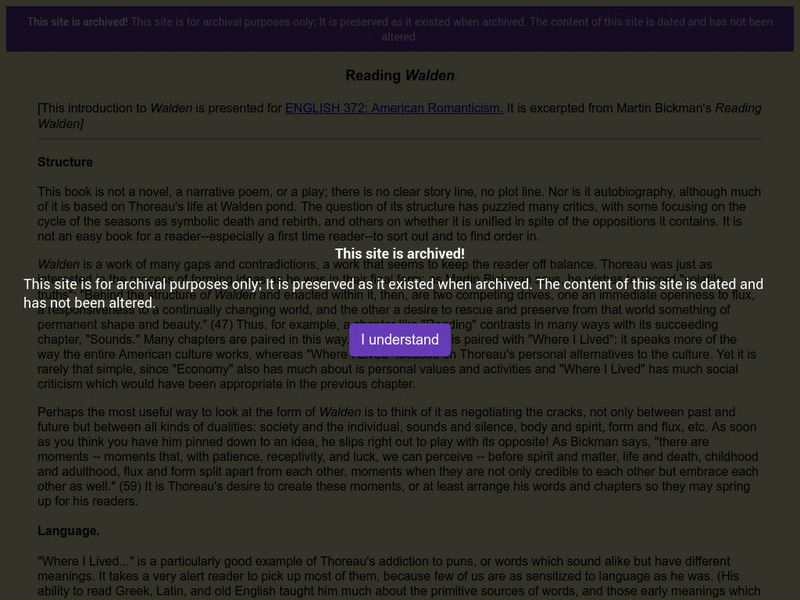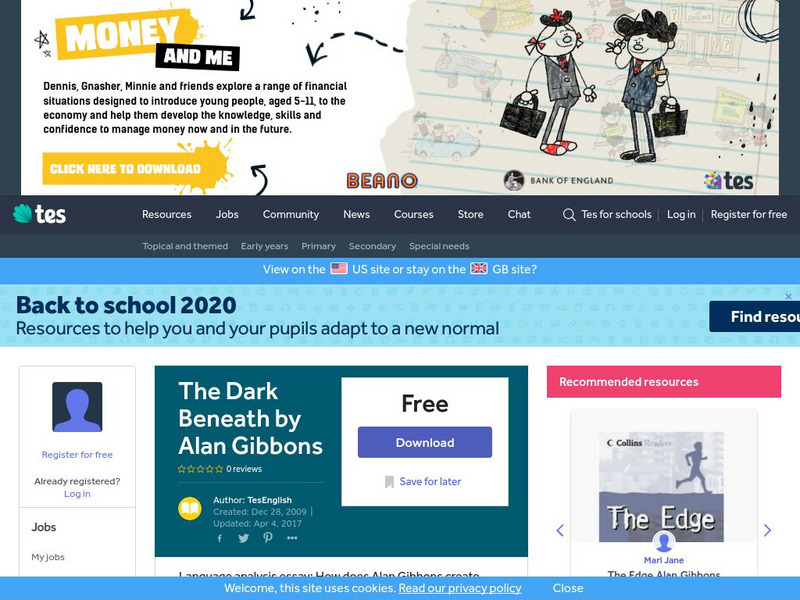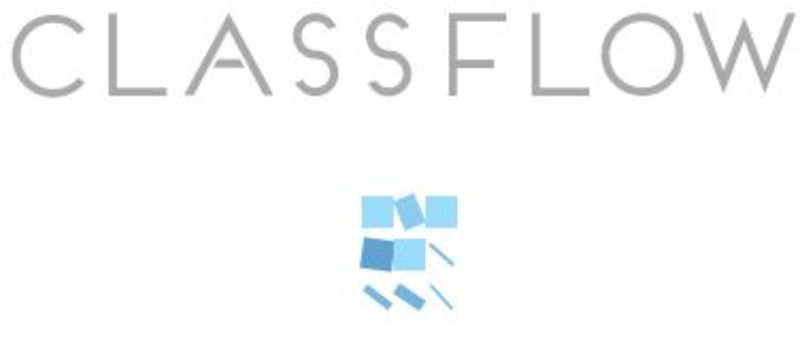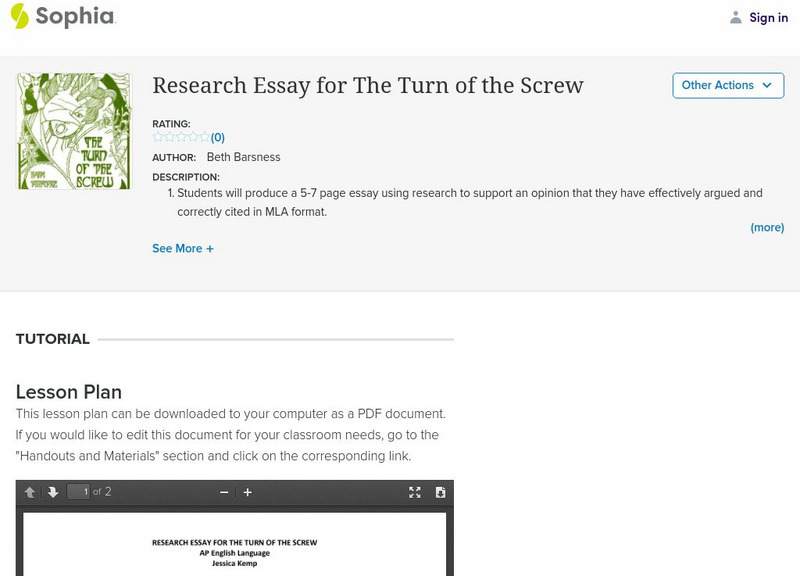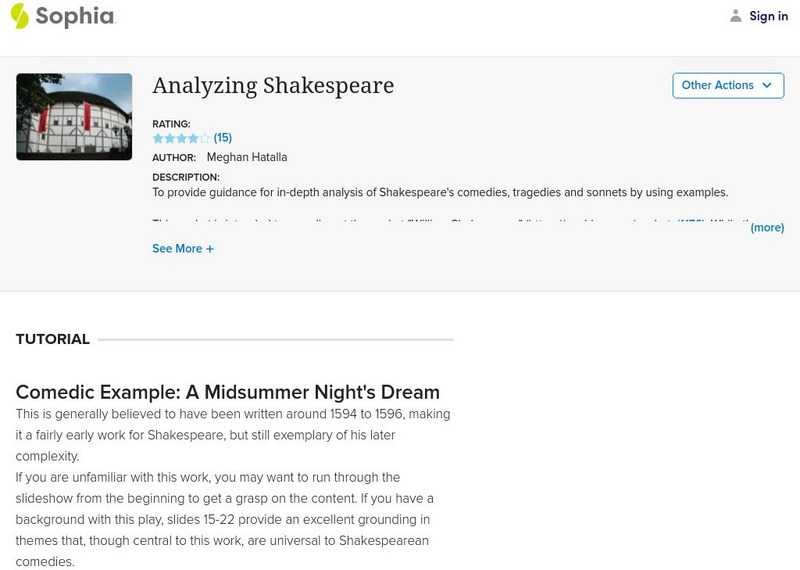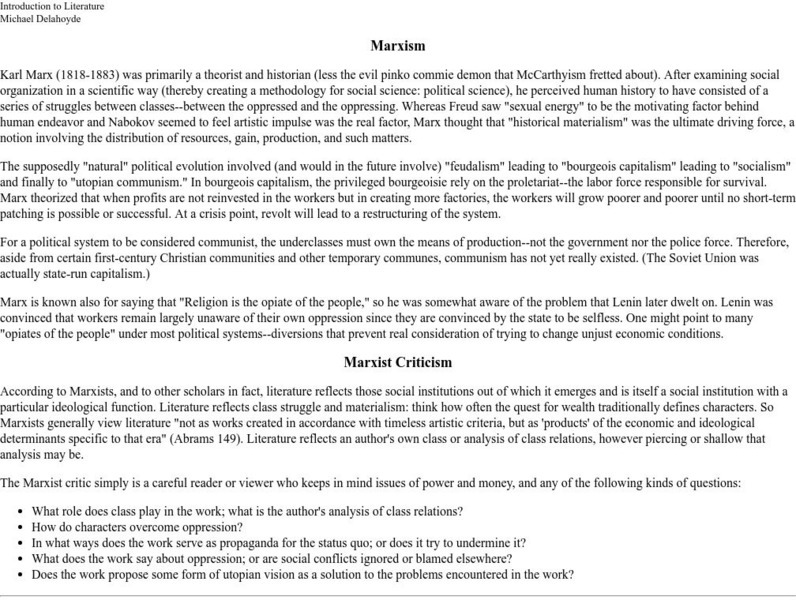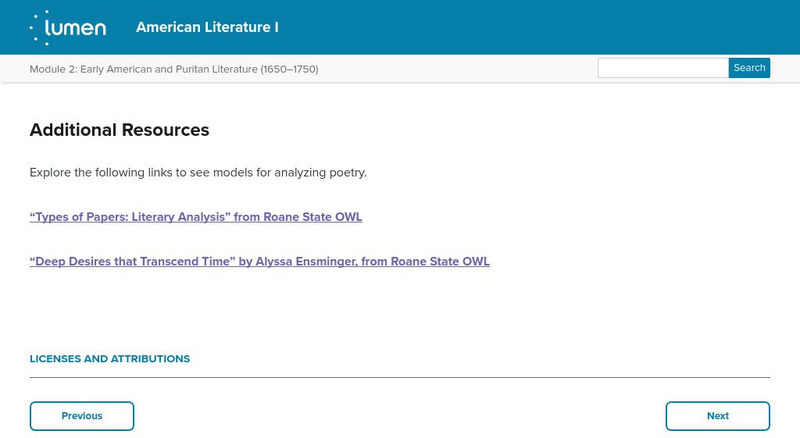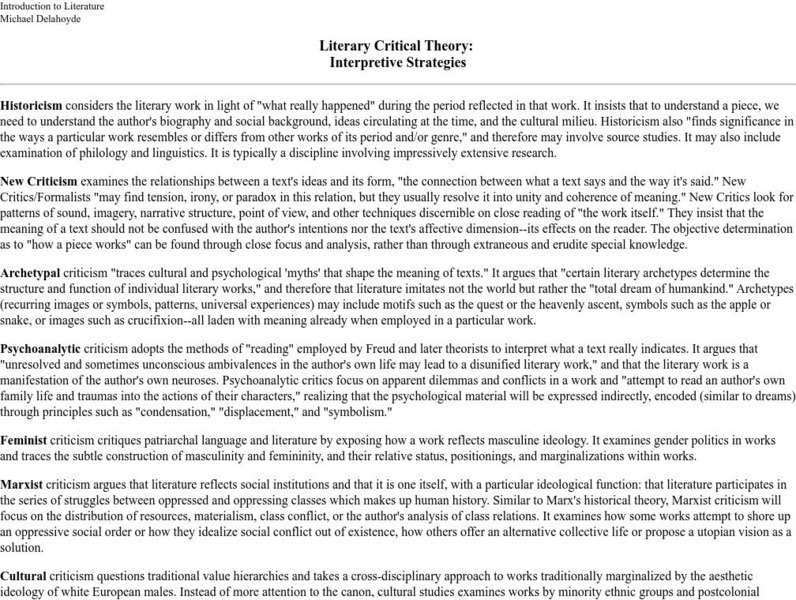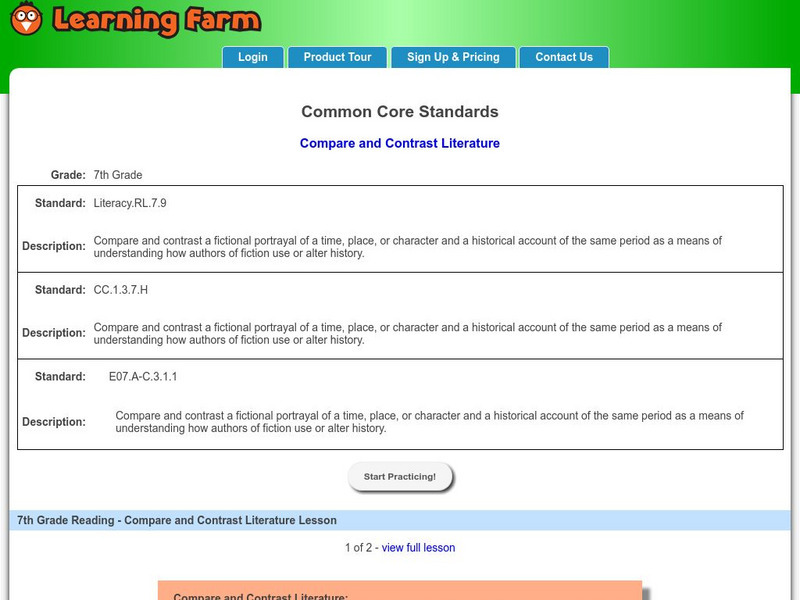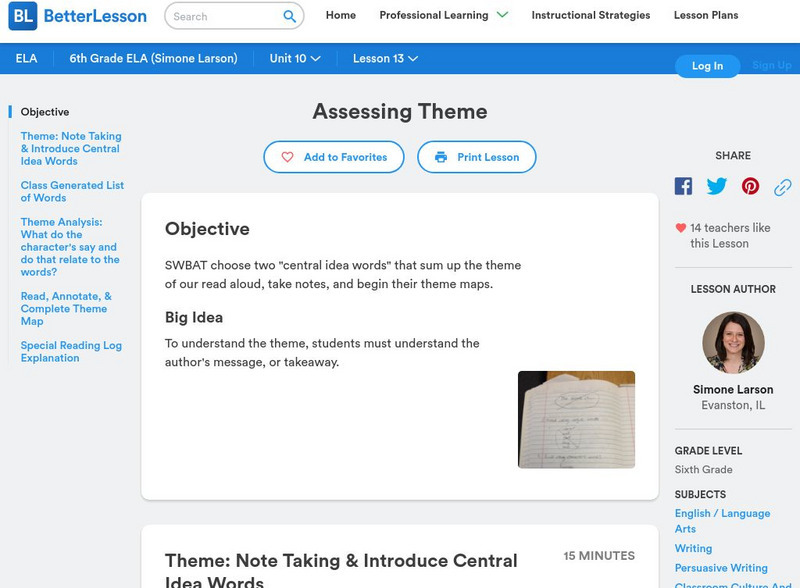Virginia Commonwealth University
Virginia Commonwealth University: American Romanticism: Reading Walden
This Virginia Commonwealth University site discusses the language and rhetoric used in Walden, accompanied by questions about how to interpret it.
Texas A&M University
American Transcendentalism Web: Walden Study Text
This Virginia Commonwealth University site contains study notes that explain the text to each chapter of Thoreau's "Walden."
Goshen College
Goshen College: Literary Analysis Guide
This resource not only explains how to analyze a text, but also, provides student examples of literary texts. W.9-10.9b Research/Argum, RI.11-12.5 Evaluate text structure
TES Global
Tes: The Dark Beneath by Alan Gibbons
[Free Registration/Login Required] This PowerPoint presentation includes incremental steps that will help students write a language analysis essay of Alan Gibbons' The Dark Beneath.
ClassFlow
Class Flow: Poetry Figurative Language
[Free Registration/Login Required] This flipchart discusses various forms of poetry and gives examples of each. Figurative language is explored as a way of determining the meaning of a piece of literature.
Sophia Learning
Sophia: Comparing and Contrasting Texts
Two PowerPoint presentations and a video [2:57] on comparing and contrasting literary and informational texts as well as how to write a literary analysis. Includes links to external resources.
Sophia Learning
Sophia: Research Essay for the Turn of the Screw
This PDF lesson plan is for students to write a 5-7 page essay which uses research to support their stance on a topic. For this essay, the students will argue whether they believe the character of the Governess, from Henry James' The...
Sophia Learning
Sophia: Selecting Topics for Literary Analysis
A series of three PDF documents providing definitions of commonly used terms when preparing to write a literary analysis, explaining how to comment on a literary text, and demonstrating the process of analyzing the literary text "Hills...
Sophia Learning
Sophia: Analyzing Shakespeare
Learn to analyze Shakespearean comedies, tragedies, and sonnets. First use examples provided in a slideshow of A Midsummer Night's Dream to understand the process and topics included in an analysis of a comedy. Then learn to use three...
Harvard University
Harvard College Writing Center: How to Do a Close Reading
A brief explanation of the tasks involved in doing a close reading in preparation for writing. This writer breaks the process into three steps which involve annotating the text, looking for patterns, and asking questions of the text.
Annenberg Foundation
Annenberg Learner: Literary Visions
A series of 24 instructional videos, each about 30 minutes in length, designed to teach literary analysis. Topics include Responding to Literature, The Elements of Short Fiction, Tone and Style in Short fiction, The Elements of Poetry,...
Washington State University
Washington State University: Marxism
A basic explanation of Marxism as it applies to literary theory. Includes a bibliography.
Other
Teengagement: Targeted Intervention: Word Choice Shapes Meaning and Tone
In this lesson, learners interpret how words are used in a literary text and examine how word choice affects meaning and tone. A sample analysis of a poem is presented, terms are defined, and question stems for assessment purposes are...
Washington State University
Washington State University: Feminism
This site tackles the "F-word," -- and questions how feminism, especially feminist literary theory, got turned into a dirty word. A basic explanation of the critical approach of feminism to literature.
Rock and Roll Hall of Fame
Rock & Roll Hall of Fame: Sti Lesson 39: People Everyday
This activity with a song of my choice, 'People Everyday' by Arrested Development, will be an introduction to literary analysis and media/popular music literacy. Learners will learn to examine critically what they view and hear. They...
Lumen Learning
Lumen: Models for Literary Analysis
Explore these links to see models for literary analysis including a model analysis of poetry. "Types of Papers: Literary Analysis" from Roane State OWL and "Deep Desires that Transcend Time" by Alyssa Ensminger, from Roane State OWL....
Washington State University
Washington State University: Literary Critical Theory: Interpretive Strategies
Defines various critical approaches in brief. Click the Critical Theory link at the bottom of the page for more detail.
Other
Marxist Literary Criticism: Brief Guide
Brief overview and guide to Marxist criticism. Easy to digest and fairly comprehensive page.
Online Writing Lab at Purdue University
Purdue University Owl: Writing About Literature
Purdue University's Writing Lab offers some hints and tips for writing about literature, including how to construct a thesis and how to handle secondary material.
National Endowment for the Humanities
Neh: Edsit Ement: Animal Farm: Allegory and the Art of Persuasion
This lesson plan will introduce students to the concept of allegory by using George Orwell's widely read novella, Animal Farm. Through this novel, students will learn what an allegory is, the rhetorical components of an allegory, and...
Pennsylvania State University
Pennsylvania State University (Dr. Mc Clennen): How to Do a Close Reading
This guide is written for college students, but should be very useful for upper level high school students as well. The writer first describes fourteen steps to take in doing a close reading, then provides six pieces of advice on how to...
Better Lesson
Better Lesson: Analyzing Literary Devices With a Written Discussion
Students will be able to analyze literary devices by participating in a written discussion. This activity is called "Pass the Paper". Students pass a sheet of paper around the room, with each student adding on. It's just a different way...
Learning Farm
Learning Farm: Compare and Contrast Literature
Students will learn how to compare and contrast passages from different time periods. Analyzing the similarities and differences of in the way authors show a historical time, place, or a character gives the reader a broader understanding...
Better Lesson
Better Lesson: Assessing Theme
This is an introductory lesson on the concept of theme. Students choose two words that sum up the theme of the novel "So B. It" by Sarah Weeks. They then analyze a passage to find evidence of their choices and create a theme map. They...
